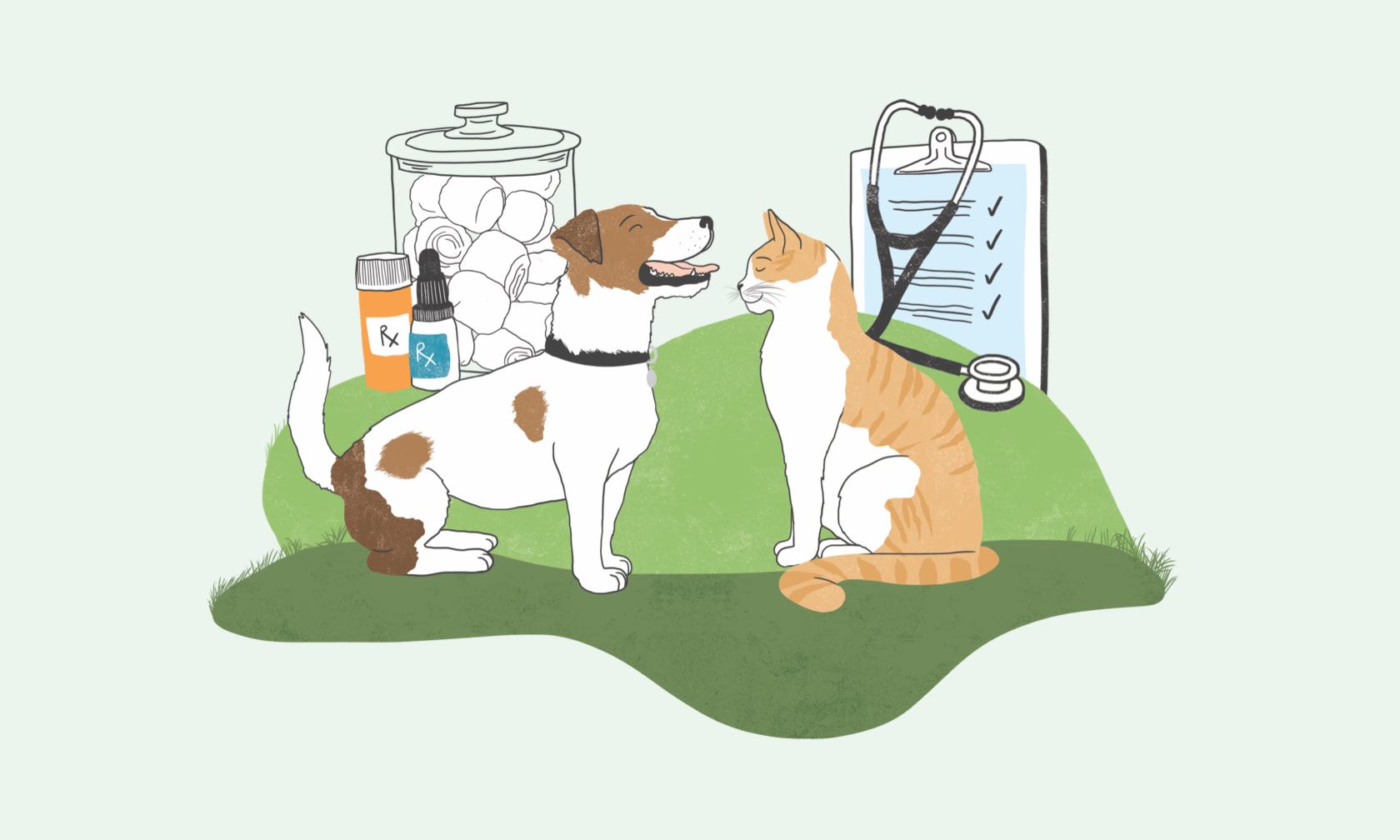Recent life stage guidelines by the AAFP and AAHA (American Association of Feline Practitioners and American Animal Hospital Association) emphasize the importance of a thorough consultation and physical exam at all dog and cat life stages[1]. Visit frequency and testing recommendations should be adjusted as your pet ages. Senior and geriatric pets should be seen at least semi-annually to allow for earlier detection of and intervention for chronic disease.
Laboratory testing (including complete blood count, chemistry panel, urinalysis, and infectious disease screening) is one of the best methods to identify some common medical conditions that may not be identified through a history and physical exam alone. Recent studies have demonstrated the widespread presence of laboratory abnormalities in healthy-appearing dogs and cats.[2,3]

Common senior pet health issues
As pets age, organ systems often begin to deteriorate due to factors such as genetics, breed, or their environment. Often, the exact cause of age-related illness is not determined. The good news is that many of these diseases can be effectively treated and monitored with early diagnosis. These include (but are not limited to):
- Liver disease
- Heart disease
- Degenerative joint disease
- Dental disease
- Endocrine disease
- Thyroid disease
- Adrenal gland disease
- Intestinal disease
- Cancer
“Patient trending” throughout the pet’s life can be very useful in predicting disease — as opposed to waiting for the pet to become symptomatic — and to test for severity of disease. With patient trending, the veterinarian performs diagnostic tests regularly over the life of the pet to look for subtle changes, such as changes in kidney values that may indicate early disease prior to elevations beyond the reference interval. Intervening earlier may allow for improved longevity and quality of life.
Benefits of preventive testing for senior pets
- Assesses Your Pet's Internal Organ Health
Liver, kidney, and thyroid diseases are common and can be treated once diagnosed. - It's Non-Invasive
Advanced testing can be performed with a brief office visit and a small blood, fecal, and/or urine sample. - It Reveals Your Pet’s True Health Status
Your pet can’t talk and will hide disease naturally — lab testing helps identify issues that pets cannot speak to. - It Provides a Clean Bill of Health Inside and Out
Veterinarians can detect disease earlier with regular testing and trending results.
ZPC-00528R1
- AAHA-AVMA Preventive Healthcare Guidelines Task Force. (2011). Development of new canine and feline preventive healthcare guidelines designed to improve pet health. Journal of the American Veterinary Medical Association, 306–311.
- Paepe, D, et al. (2013). Findings in apparently healthy middle-aged and old cats. J Feline Med Surg.
- Willems, A, et al., Vet Intern Med, 2017 (v1.0). (2017). Results of Screening of Apparently Healthy Senior and Geriatric Dogs. J Vet Intern Med.



